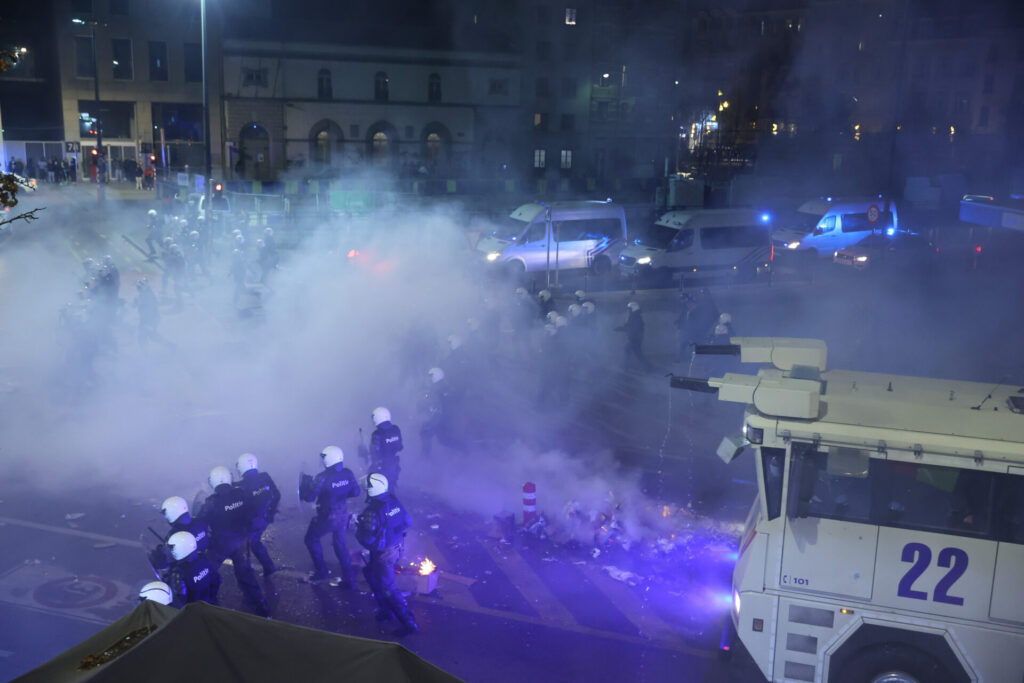On Wednesday, journalist Yassin Akouh took to the streets of Brussels to report on the disturbances following the World Cup match between France and Morocco. By trying to carry out his job, he ended up in a police cell.
"I was detained today. I am writing this from a police cell. I identified myself as a journalist several times, but this was not heeded," Akouh wrote on his Twitter account just after midnight.
During previous celebrations which resulted in violent confrontations, Akouh was already once attacked by the police despite repeatedly identifying as a journalist reporting on the incidents.
On Wednesday night, Akouh was taking footage of the incidents occurring near Lemmonier, but the police intervention started more rapidly than before, and he decided he should get himself to safety. "But it was already too late. At one point, everyone was hemmed in, including me," he said on public broadcaster VRT's De Afspraak.
He recalled that there was tear gas everywhere and that he was trying to tell the police that he was a member of the press. Later, Akouh was pushed to the ground next to a group of youths who were also present, and his hands were tied behind his back.
One officer came looking for Akouh and asked for his press card. "I was handcuffed but passed him my press card out of my pocket. He looked at it and literally started laughing." The officer allegedly took a picture of the card and said that a complaint would follow if Akouh shared the images.
Akouh was put away in a separate van and taken to his own individual cell, where he remained until 01:20, without being told what his rights were.
Press freedom and racial profiling
The Flemish Union of Journalists (VVJ) has since reached out to the Brussels-Ixelles police zone regarding it treatment of Akouh.
"We regret the unjustified handling by the police. All this not only caused him personal suffering, but it also prevented him from doing his job as a journalist," Charlotte Michils, Legal Advisor for the VVJ, told The Brussels Times. The union stressed that it continues to oppose any crackdown on journalists.
For many, the heavy police presence on the streets of cities with large Moroccan communities, most notably in Antwerp and Brussels, during World Cup Matches played by the Arab football team was a reflection of the systemically racist anti-Arab sentiment that Belgian citizens with a Moroccan background face within their country.
Related News
- Armed far-right group arrested in Paris after World Cup match
- Morocco lose to France in World Cup: Arrests in Brussels and Antwerp following incidents
Meanwhile, this latest case involving Akouh affirms worries that police controls are disproportionately conducted on people of Moroccan heritage. This was already the centre of a UN report published last year, which expressed concern over the alleged racist violence and profiling by police in Belgium, and was confirmed in recent figures representing complaints against the police, of which an increasing number point to racism and/or discrimination.
"The journalist is free to complain. We will review internally what happened," Ilse Van de keere, Brussels-Ixelles police zone's spokesperson, told The Brussels Times.

